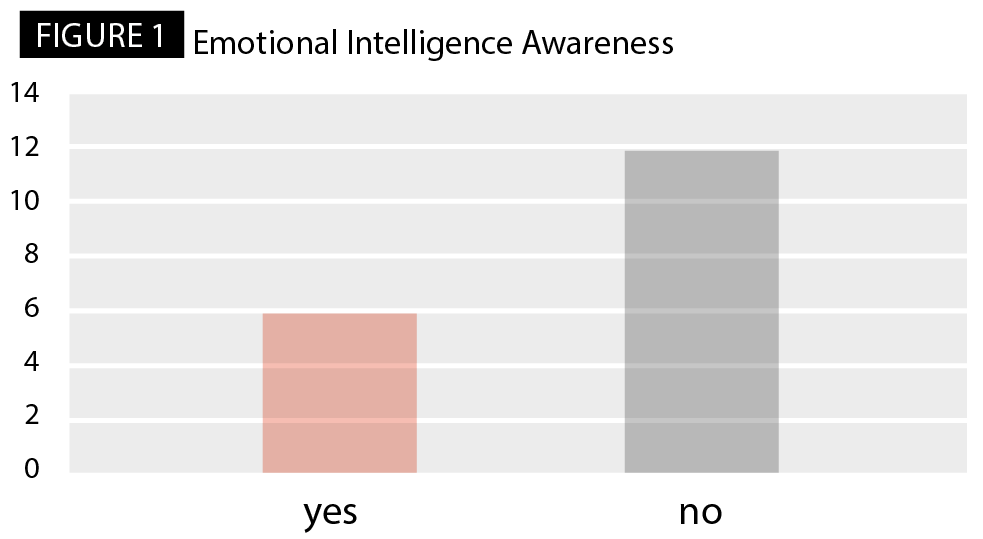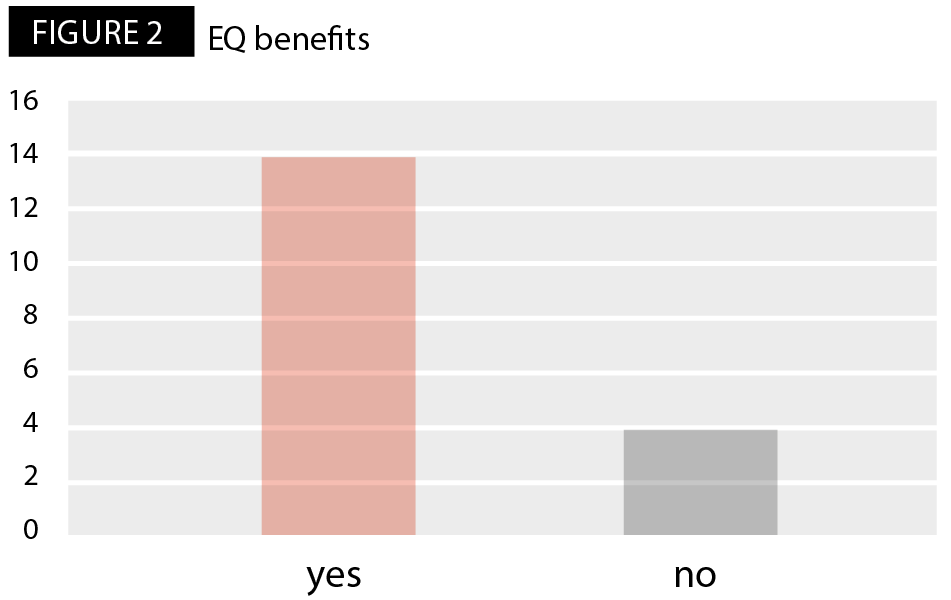By Dr Anna Maria Rostomyan, PhD Mentor, Swiss School of Business Research
Emotional Intelligence (EQ) can be considered to be one of the cornerstones of success, especially in HRM, where you deal with human capital, which is the only sustainable force in working towards lasting accomplishments. This article provides insights into, and examples of, successful management with emotional intelligence, and gives you 10 useful tips on how to raise your EQ skills.
In today’s challenging times of global pandemic, there is an urgent need for soft skills, which are a good complement to technical skills in ensuring the success of your business.
In fact, researchers have been wondering why some people with a very high IQ are sometimes surpassed in business by those with a lower IQ. Theorists began to look for another “intelligence” quotient that could help people succeed and, in the 90s, it was claimed that a high EQ level was the required trait.
According to a survey in an insurance company on EQ and IQ performance, people with a higher EQ outweighed the success of those with a high IQ, resulting in a higher salary, as employees with a higher EQ managed to build stronger customer and partner bonds compared with employees with a higher IQ.
Emotional intelligence is the ability to perceive, understand, use and manage your own emotions, as well as the emotions of the others. Managing emotions is tightly linked with our higher cognitive processes and the harmonious flow and interaction of the emotional and rational parts of the brain, which guide us throughout our lives and dictate our behaviour in any given situation.3
In the past, emotions and intelligence were often viewed as being in opposition to one another. In the recent decades, however, researchers exploring the psychology of emotions have become increasingly interested in cognition and affect, and the interrelation of rationality and emotionality3,4.
Indeed, human resources are not machines, but are endowed with certain emotions and feelings, and if managers want them to succeed and manifest high performance, they have to take into consideration their emotions and feelings, motivations and aspirations, as well.
In the context of the workplace, we have to note that the management of emotions is a part of your profession.2 Moreover, here one should be equipped with strong EQ skills to endure stress, and this concerns not only the employees, but also the management.
According to our survey results at an Armenian bank, leaders equipped with high EQ skills are more likely to inspire others and to drive them towards success, which results in profitable outcomes for the whole corporation as an entity. Such leaders stand a better chance of tuning in to the emotions and feelings, needs and expectations of others and, knowing all this, leading them better towards a common goal.
In this respect, we can take the example of a Dubai-based company that allowed one of its employees to work from her home office in her home country, taking into account her current family issues which affected her attention and ability to stay focused. In this way, they managed to keep a good worker and, moreover, feeling grateful for not getting fired, the employee performed better, ensuring improved labour output and better business results. It follows that the emotionally intelligent and wise approach of the company management benefited both the employee and the company.
Another example to prove that taking into consideration the emotions of the employees can be of benefit to the whole company is our local small business in the automotive sphere. We faced challenges here during the pandemic, since both the head of the company and the employees were struggling with health issues. Our partners did not urge us to perform better during these times, which were difficult for all the parties involved, and, as a result, when the situation stabilised, the whole team performed better and faster compared with the previous year. This also suggests that tuning in with the partners’ needs, doubts, challenges and concerns, and taking into account the current health emergency can later on work in the best interests of both parties, since after getting back on their feet, they will do their best to compensate for the loss of time.
Here, we can speak about the importance of servant leadership, which involves taking care of the emotions of the employees and guiding them with constant support towards becoming the best version of themselves and attaining their goals, as well as the main targets set by the whole company. A servant leader, unlike a commanding boss, provides support, instruction, feedback and guidance to the whole team in order to reach a common objective.
As we can see from the examples provided above, emotional intelligence can indeed be a game changer and can lead companies towards success, making sure that everyone involved feels secure and protected, so that they perform at their best as a “thank you” to the whole company.
These days, the notion and application of emotional intelligence in the workplace and in business generally is gaining more and more prominence, especially in times of pandemic.
Moreover, according to research conducted by the global hiring cabinet for recruitment, Robert Half, recruiters look for EQ skills in about 88 per cent of job applications.
There is no doubt that at the workplace and in global business, we have to deal with people who have different cultural and educational backgrounds with different internal motivations and intentions.
Hence, to succeed at work, we not only need theoretical and technical skills, but also soft EQ skills, which have the greatest potential to make us work together better, more smoothly, more happily, more healthily, more peacefully and more successfully.
Yet, it is noteworthy that sometimes people think of emotional intelligence as a superpower and an inborn quality, as the results of our survey show (Figure 1).

Do you think emotional intelligence can be learnt?
Nonetheless, we have to point out that, although seemingly hard to achieve, EQ skills are attainable and can be acquired in life1.
Emotional intelligence is, in fact, our ability to learn various practical skills that are based on five components: self-awareness, self-motivation, self-control of emotions, empathy and social skills in human relationships.1
Here are 10 tips that can be practised by anyone at the workplace globally, across cultures:
1. Pay attention to your own emotions, as well as the emotions of others surrounding you (both privately and in business).
In fact, throughout the whole day, we may feel very different emotions and feelings that we are very often not fully aware of. If you try to understand these very emotions in yourself, and in others who are also trying to identify them and their reasons and causes, you will be better equipped to deal with them appropriately.
2. Manage your emotions.
The workplace is a source of many heated conversations and emotionally difficult situations to deal with. We are expected not to make a dramatic display of our anger all the time, although we can sometimes exhibit some portion of it if a co-worker does something wrong, so that they understand that they are at fault. This brings us to the understanding that we have to manage the expression of our emotions in the workplace according to some predefined professional display rules2.
3. Try to put yourself in the other’s shoes.
The more we try to understand the perspectives of others, the easier it will be for us to understand any concerns, doubts and/or issues that they might have. This is a step forward towards empathy skills, which help us tune in harmoniously with the surrounding world, which is the highest degree of emotional intelligence.
4. Listen before you speak.
Listening is a very important skill – even more important than speaking, since when we listen, we are trying to understand what the other is trying to convey. So, we have one mouth to speak, but two ears to listen. Hence, we should be listening to the needs of our co-workers more than we speak and give instructions.
5. Count to four before reacting to anger.
When you are in a heated emotional situation, you might lose control over your emotions and exhibit them, sometimes in a very exaggerated manner, which you may regret later on. So, try to calm down before reacting angrily, so as to avoid any consequent harsh verbal conflicts.
6. Respond rather than react.
Reacting is when we unconsciously experience an emotional trigger caused by an external stimulus that directs us towards expressing a certain emotion or feeling on the outside. On the other hand, when we respond, we notice how we are feeling, and we consciously decide on how we should respond appropriately, harmoniously and cooperatively to those with whom we interact.
7. Ask when you do not know something.
You are not expected to be a Mr/Mrs Know-All. So, whenever you feel as if you need extra advice, ask for it. After all, a person who is ashamed of asking is ashamed of learning, which is indeed a never-ending process.
8. Apologise directly when you are at fault.
Nothing helps us build trust and rapport quicker than owning up to our mistakes and apologising, because this creates our authentic images with all our flaws and all, since we humans are not perfect creatures.
9. Create an emotionally secure and positive working environment.
A healthy working atmosphere is one of the cornerstones of the success of your company, where all the co-workers feel cherished and secure with all their doubts and concerns, being sure that they are being taken good care of by the company’s management.
10. Give more praise when your employees do a good job.
In fact, we all strive to get recognition, and when we receive praise, we feel of more value and even commit to improving our skills and performance. I had two different bosses: one who praised us for being a good leader, and one who didn’t and used to take the credit for the employees’ work. Of course, I preferred working with the first one. As John Maxwell said, “A good leader is a person who takes a little more of the blame and a little less than his share of the credit,” and as they also truly say, “A person who feels appreciated will always do more.”
Practise these actions at your workplace and you won’t have to wait long to see the results, since you will benefit greatly from raising your level of emotional intelligence.
As a matter of fact, after being provided with more insights into the concept of emotional intelligence and the techniques of raising it, people really do see its benefits and the advantages and assets of applying it in both their private and business lives.

Have you noticed changes in your life after deepening your EQ skills?
According to Daniel Goleman (1995)1, EQ can be a learned skill and our studies have shown that a raised emotional intelligence (EQ/EI) has the potential to improve the organisational culture, creating a healthy working atmosphere and enhancing employee performance. This is something that you, as a good manager, and your company as a whole entity will surely benefit from in the form of improved employee performance and better business results, both in relationships and in financial terms.
Emotional intelligence really can be considered to be one of the cornerstones of success for any organisation, big or small, since the people who make up the whole company all have their different emotions and feelings, beliefs and desires, motivations and aspirations. These play a part in decision-making processes, as well as affecting their overall performance both in their private lives and in business. So, if we take this into consideration and try to act in an emotionally wise, agile and flexible manner, we are sure to succeed, especially in these trying times, where EQ really can be a good and true game changer.
This article was originally published on 15 May 2022.
About the Author

Dr Anna Rostomyan is a professor, EQ coach, international author and PhD Mentor at the Swiss School of Business Research (SSBR). She defended her PhD in collaboration with the University of Fribourg (Switzerland) and Yerevan State University (Armenia). She is the author of three books and 30 publications worldwide, with readers of around 100 nationalities. E-mail: annarostom@yahoo.com, anna.rostomyan@ssbr-edu.ch
References
- Goleman, Daniel (1995). Emotional Intelligence: Why it matters more than IQ. New York: Bantam Books.
- Hochschild, A.R. (1983). The Managed Heart: Commercialization of Human Feeling. Berkeley: University of California Press.
- Rostomyan, Anna (2013). A Linguo-cognitive Analysis on Verbal and Non-verbal Expressions of Emotions (on the material of English). Dissertation. Yerevan State University, Yerevan, Armenia.
- Rostomyan, Anna (2020). Business Communication Management: The Key to Emotional Intelligence. Hamburg: Tredition.



































